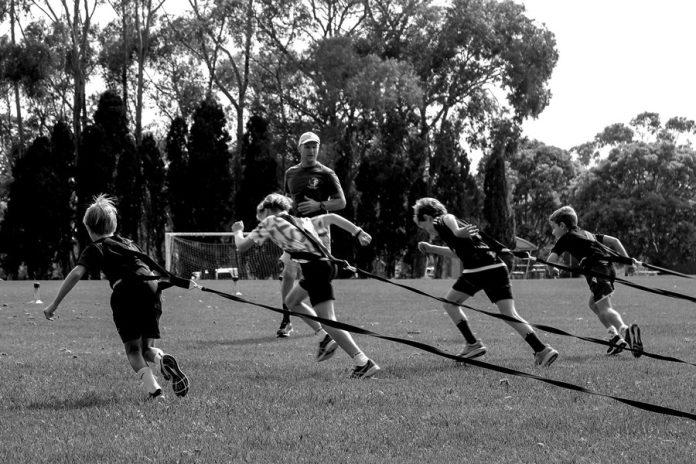Strength training, a regimen that typically involves lifting weights and utilising resistance to build muscle mass and strength, offers several benefits for athletes that extend beyond the physical realm. Particularly, strength training for young athletes can significantly enhance their athletic performance and mental well-being.
Psychological benefits of strength training
- Enhanced self-esteem and confidence: Regular engagement in strength training can lead to noticeable improvements in physical strength and body composition. For young athletes, these changes often translate into a boosted self-image and higher self-esteem. The sense of achievement in hitting new personal records or simply observing their progress can be a powerful confidence builder.
- Improved mental health: Exercise, including strength training, is known to stimulate the release of endorphins, the body’s natural mood elevators. This biochemical process can lead to reduced feelings of anxiety and depression, making it an effective tool for young athletes to manage the mental challenges that come with competitive sports.
- Development of discipline and work ethic: It requires consistency, dedication, and patience. Young athletes learn the value of discipline as they adhere to their training schedules and work steadily towards their goals. This commitment often translates into other areas of their lives, fostering a strong work ethic and a disciplined approach to challenges.
- Enhanced focus and cognitive function: Engaging in regular strength training has been shown to improve cognitive function, including better concentration, sharper memory, and faster learning. For young athletes, this can translate into improved performance both on and off the field.
- Goal setting and achievement: It allows young athletes to set specific, measurable, attainable, relevant, and time-bound (SMART) goals. The process of setting and striving to achieve these goals can be incredibly rewarding and can teach valuable lessons about planning, persistence, and the gratification of achieving personal objectives.
- Improved sleep quality: Regular strength training can contribute significantly to better sleep patterns. Young athletes who engage in this form of physical activity often experience deeper, more restful sleep. This improvement in sleep quality can lead to better mood, higher energy levels, and an overall more positive mental state, essential for their training and daily activities.
- Increased resilience to stress: Strength training can act as a form of physical stress on the body, which, in a controlled environment, can teach young athletes how to handle and adapt to stress more effectively. This increased physical resilience can translate into improved mental resilience, enabling athletes to better manage stressful situations in competitions and life. This skill is invaluable, as it equips them with the capability to face challenges with a more balanced and composed mindset.
Strategies for maintaining motivation and fostering a positive relationship with exercise
Encouraging young athletes to set realistic goals is crucial for maintaining motivation without leading to burnout or disappointment, with the celebration of small victories along the way crucial for sustaining morale.
Incorporating a variety of exercises and routines keeps strength training engaging, prevents boredom and improves overall athletic performance by targeting different muscle groups.
Young athletes need to focus on their progress, learning to measure success by their standards rather than through comparison with others, which fosters a healthier relationship with exercise and body image.
Social support from peers or a supportive coach can significantly enhance motivation and accountability while fostering a sense of community and belonging.
Young athletes should be educated about the importance of rest and recovery, recognising signs of overtraining and listening to their bodies to prevent injury and promote sustained engagement with strength training.
Mindfulness and positive self-talk should also be encouraged to help them manage the psychological pressures of training and competition, aiding in stress reduction and improving overall mental well-being.
Additionally, integrating feedback and reflection can help athletes understand their experiences and learn from them, which enhances emotional intelligence and self-awareness.
Celebrating diversity in training environments can promote inclusiveness and respect among young athletes, enriching their social experiences and contributing to a more supportive and understanding athletic community.
Strength training in the routines of young athletes can lead to significant mental and physical health benefits. Young athletes can enjoy the benefits of maintaining motivation and supporting a positive relationship with exercise and body image.
For those based in or around the Mornington Peninsula, considering strength training sessions at a local gym in Dromana can provide a supportive environment tailored to young athletes. With professional guidance and a community of like-minded individuals, young athletes can embark on a strength training path that nurtures their bodies and minds.
Overall, strength training for young athletes is about building muscle, enhancing athletic performance and cultivating a healthy, resilient mindset that will serve them well in all facets of life.
